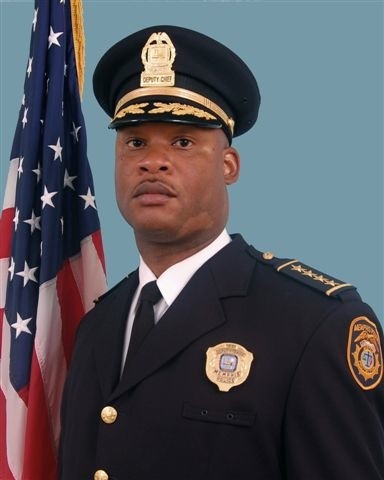
Over the last few months, several Memphis Police Department (MPD) officers have made headlines. It began with the murder of Officer Martoiya Lang, who was fatally shot on Dec. 14th, 2012 as she served a drug-related warrant at a house in East Memphis.
“[Officers] never discuss being harmed, but we try to be as careful as possible,” said 13-year MPD veteran Gloria Suggs. “It’s something that we keep in the back of our mind. You don’t want to think about not going home to your family. You just want to keep it positive and believe that everything is going to be okay.”
Nearly two weeks after Lang’s death, on December 27th, MPD officers fatally shot Charles Livingston, an armed robbery suspect, after he fled through the woods from a McDonalds on Frayser Boulevard. Officers said he pointed a gun at them, which led them to discharge their weapons.
On January 11th, an MPD officer fatally shot Donald Moore, an animal hoarder, at his Cordova home. The officer shot Moore after he pointed a gun at him and several Memphis Animal Services employees, who were there to serve an animal cruelty warrant.
A week later, on January 17th, officers shot and killed Steven Askew as he sat in his car in the parking lot of the Windsor Place Apartments at Knight Arnold and Mendenhall. The officers shot Askew after he allegedly pointed his handgun, which he was registered to own, at them. One of the officers involved with Askew’s shooting, Ned Aufdenkamp, has received several complaints throughout his tenure as a police officer and was submitted for the department’s Early Intervention Program in 2012.
On January 23rd, one week after Askew’s death, a MPD officer shot 18-year-old Bo Moore in the parking lot of the Quick & Easy convenience store on 931 S. Highland after he pointed a gun at the officer.

Additionally, the media has focused in on the Tennessee Bureau of Investigation’s (TBI) investigation into why MPD officer Terrance Shaw shot and killed 15-year-old Justin Thompson in September 2012. Shaw was off duty at the time of the shooting. The TBI investigated whether or not Shaw was trying to prevent a robbery during the shooting and if he had prior history with the victim. Shaw was cleared of facing criminal charges for the shooting on February 1st.
“There is insufficient evidence to create a reasonable chance for a conviction against Mr. Shaw, particularly when considered with the foreseeable defense that could be raised under the evidence,” District Attorney Amy Weirich said in a statement.
Prior to the death of Thompson, Shaw was involved in three shootings, which were all considered justifiable. On Valentine’s Day of 2009, Shaw shot and killed 25-year-old Courtney McGowan after he put his car in reverse and nearly ran Shaw and his partner over, according to the incident report. In November 2008 and June 2011, Shaw shot two different dogs that charged at him.
In a time where MPD officers are receiving more negative attention than positive, Suggs still wears her badge with pride. She said it’s not fair for all MPD officers to be viewed negatively when there’s only a handful who are going against what the department represents.
“We’re like miniature celebrities, because if anything goes on with this family, every news channel and newspaper wants to capture it,” Suggs said. “People forget that we are human. We are mothers. We are fathers. We are grandfathers, grandmothers, husbands and wives. We’re someone’s sister. We’re someone’s brother, and we have family at home that want to love us just as if we didn’t have blue on. Sometimes people forget that we do have love in our hearts, and if we didn’t, we wouldn’t risk our lives to help out the community.”




